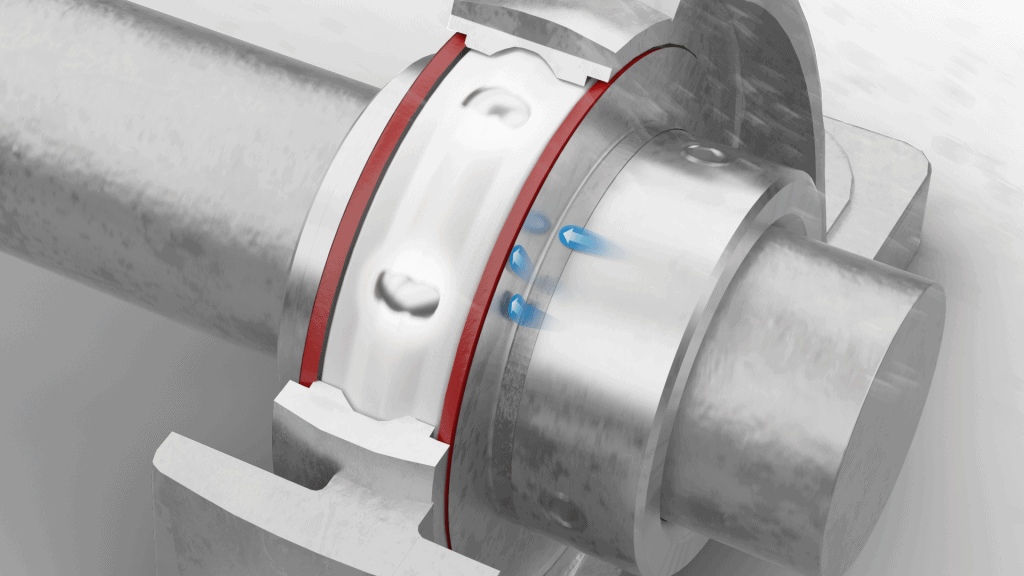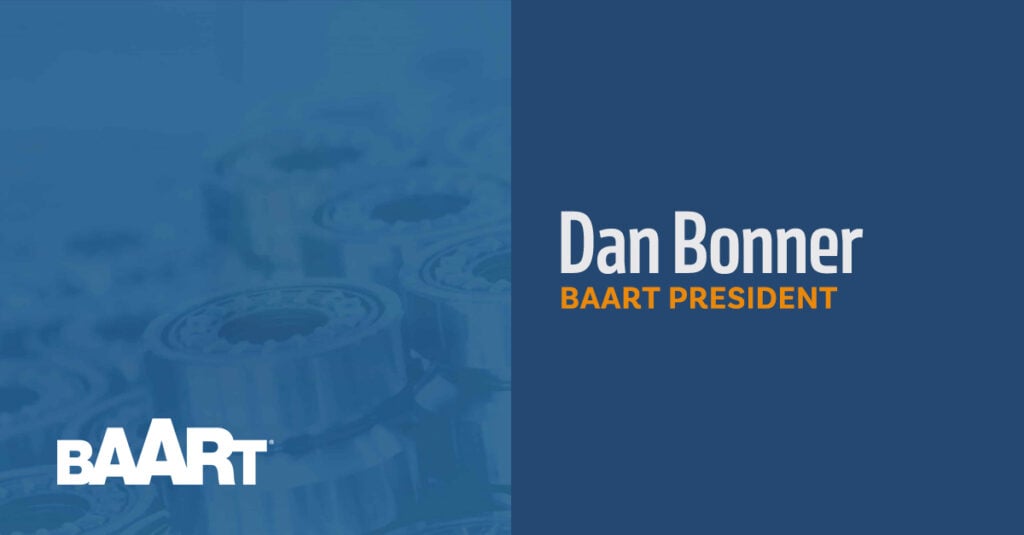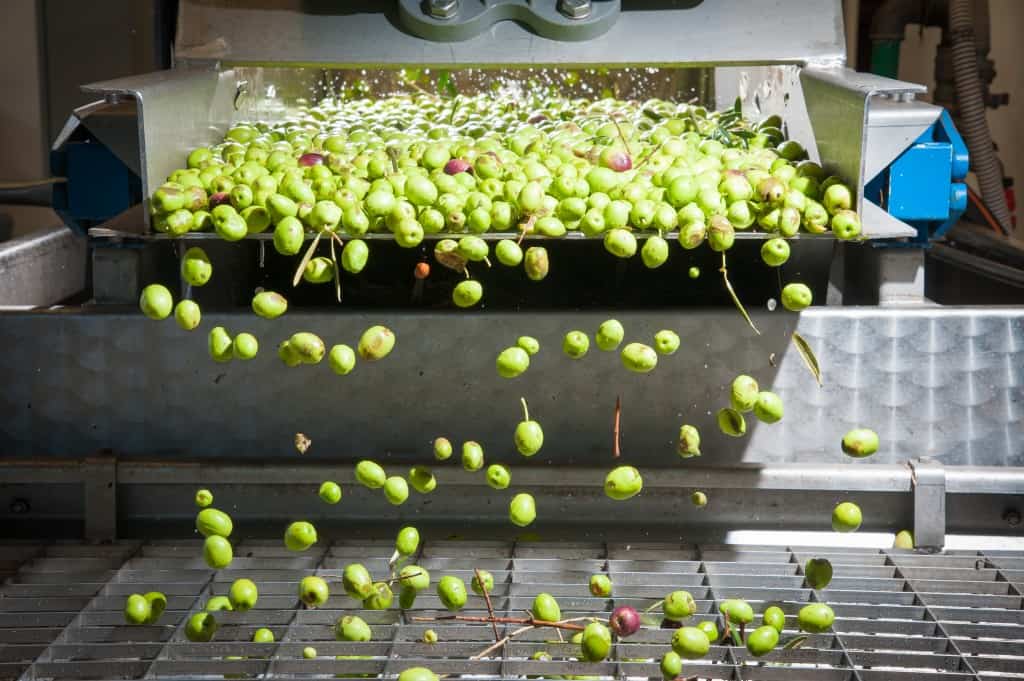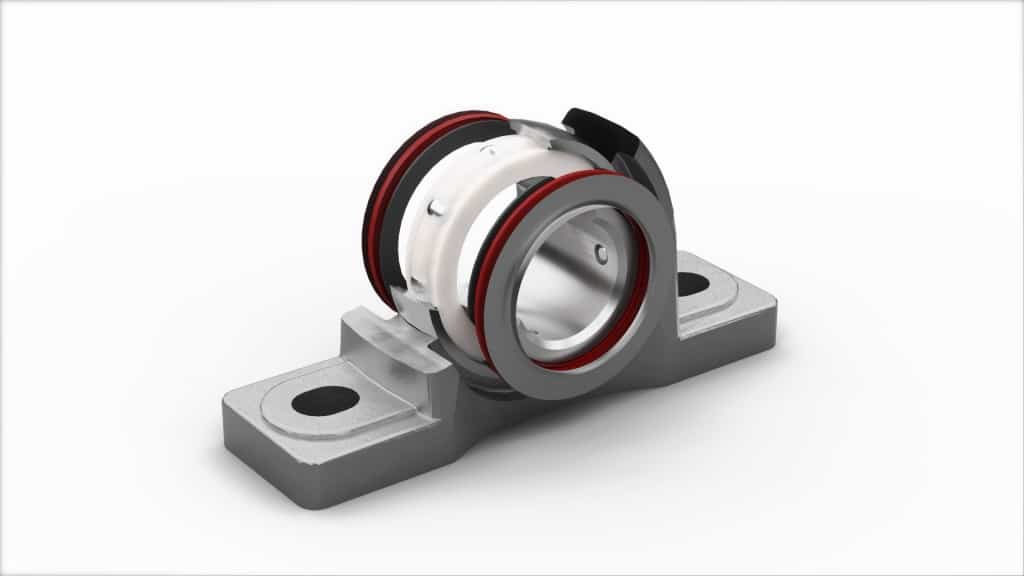Food-Grade Bearings & Solid Lube: Washdowns & Resistances

Many applications undergo regular cleanings to achieve some level of cleanliness. Some applications, like those with food-grade bearings, require more thorough methods, ensuring high standards of sterility. The most efficient and effective way to keep an application clean is through washdowns. These often involve water, solutions, or detergents, depending on the requirements of the operation.
However, one certainty exists: greased bearings and high-pressure washdowns have a problematic relationship that can lead to failure through lack of lubrication or corrosion. On top of this, the solutions and detergents used in the cleaning process are generally tough on bearings, not just the grease.
Solid lubrication technology eliminates the significant issues that washdowns can create, leading to longer production times between maintenance procedures and fewer bearing failures. We want our applications to work as long and efficiently as possible before requiring maintenance or repairs.
Solid lubrication eliminates grease and offers additional protections that, in washdown applications, allow food-grade bearings to perform exceptionally.
What is solid lubrication?
When a solid lubricant is applied to a bearing, the need for grease is eliminated. This alternative lubricant is a solid polymer containing countless micro-pores as small as one ten-thousandth of an inch (.0001”), holding oil within them. As a bearing begins operating, these pores release the oil. When the bearing comes to rest, the pores then reabsorb the oil.

These solid lubricant bearings never need relubrication, containing all the oil it will need for its entire lifespan. A bearing with solid lubrication can contain up to four times the amount of base oil compared to a similarly sized greased bearing, an excellent indicator of long-term usability.
High-pressure washdowns and grease
The base oil within a lubricant is essential, providing the necessary friction reducing film between the rolling elements and race. When subjecting bearings to water or other liquids through washdowns, grease can be washed away, causing metal on metal contact between bearing components. This will lead to premature bearing failure. Lubrication, a bearing’s best protection, is the first to suffer.
Washout – the washing away of lubrication – starves the bearings of necessary oil, eliminating its protection. This is a straight path to failure through either excessive wear or corrosion.
Emulsification – the dispersion of one liquid into another – will occur when liquids get past bearing seals and into grease. Emulsified grease is ineffective because water compromises the oil film needed to protect rolling elements. Corrosion will inevitably happen as well.

Solid lubrication avoids all of this. Because the polymer is solid and contains the oil within it, the lubrication doesn’t circulate fluidly in a bearing like grease does. Washdowns cannot spray it away or displace it with water or cleaners. And because the oil is held within micro-pores, harmful emulsification is far less likely to occur.
There is one more addition that can provide further protection to food-grade bearings with solid lubrication: two factory bearing seals.
Food-grade bearings and their seals
Solid lubricants, being physically solid, provide a functional line of defense against high-pressure washdowns. It is in conjunction with bearing seals where solid lubrication performs exceptionally well. Each manufacturer approaches the combination of lubricants and seals differently, affecting bearing performance.
To apply solid lubrication to the bearing internals uniformly, seals must not be in place. The solid lubricant must surround both the rolling elements and the bearing cage to achieve the highest performance levels. A thorough fill will provide the best lubrication and protection. Therefore, applying these lubricants during the manufacturing process is most effective.
Aftermarket modifications must remove one factory seal, flush grease out, and then apply the solid lubricant. This process leads to an unreliable fill due to trapped air creating voids in the solid lubricant hidden behind the remaining seal. This leaves rolling elements without adequate protection. The polymer fill is then expected to function as a seal replacement on the fill side. The result is compromised bearing performance and inadequate sealing capabilities.
High-pressure washdowns can damage bearing seals when not careful, causing them to cave inwards or become unseated. This opening is a pathway for water or cleaners and other contaminants, compromising the polymer’s ability to lubricate and protect.
When applying a solid lubricant before the seals, the factory sealing capabilities remain, and the polymer adds additional levels of protection. With consistent polymer fills, bearing seals get support from within the bearing, making them much more difficult to compromise.
Solid lubrication, stainless steel, and corrosion
When choosing bearings for washdown applications, corrosion-resistant materials are ideal. Manufacturers of solid lubricants will have food-grade options available, as many washdown applications involve food or pharmaceutical products, and everything in between. Product remaining contaminant-free is of paramount importance.
Contrary to popular belief, stainless steel will corrode under severe circumstances, specifically in areas that trap moisture. Bearing internals – the rolling elements and cage – are a prime example of this. If water or cleaners enter a bearing cavity without the proper protections, rust can develop. Any internal rust will put a bearing on a path to failure.
Applications like these are when a thorough polymer fill pays dividends over the long term. By applying the polymer during the manufacturing process, it ensures complete coverage of bearing internals and lends support to seals from within. These bearings are now poised to prevent internal corrosion.
For bearings with solid lubrication applied after manufacturing, a single seal and polymer voids are liabilities when it comes to corrosion. Stainless balls and cages, if left unprotected for a long enough period, will corrode.
In applications that require so many conditions to be ideal, the best protection you can provide to a bearing are features that directly combat common causes of failure.
Stainless steel is a critical material in combating corrosion, but without additional protections, this may not be enough.
Washdowns are essential but have detrimental effects on greased bearings. Solid lubrication, when applied comprehensively, can combat these effects. In combination with two seals, oil washout is greatly reduced, the seals are supported, and internal components will be fully protected. Stainless steel will only take you so far, excellent lubrication will fill in the gaps.
Want to learn about the additional protections that make solid lubrication excel? Explore what sets Lubrilife apart.

- Save money while protecting your reputation for quality.
- Reduce warranty claims with fool-proof lubrication.
- Use lubrication to improve more than bearing life.




